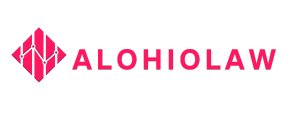In the ever-evolving world of digital marketing, a content marketing platform is like a Swiss Army knife for brands. It’s the ultimate toolkit that helps businesses create, distribute, and analyze their content—all in one place. Imagine having a magic wand that transforms your ideas into engaging blogs, eye-catching social media posts, and captivating videos. Sounds dreamy, right?
Table of Contents
ToggleWhat Is a Content Marketing Platform?
A content marketing platform serves as a centralized solution for managing content strategies. It simplifies the processes of creation, distribution, and analysis, making it easier for businesses to engage audiences. Brands utilize these platforms to transform ideas into various formats like blogs, social media posts, and videos.
Such platforms often feature essential tools for analytics, enabling users to track key performance indicators. Reporting capabilities allow marketers to measure success and refine strategies based on data-driven insights. Integration with other marketing tools enhances functionality, consolidating campaigns and improving efficiency.
Many content marketing platforms support collaboration among team members. They provide shared workspaces where content creators can brainstorm and edit together. Workflow management features streamline communication and approvals, ensuring projects progress smoothly.
Customization options empower users to tailor their content strategies. Flexible templates facilitate the quick creation of diverse content types. Additionally, automation functionalities help schedule posts across multiple channels, saving time while maximizing reach.
Investing in a content marketing platform can yield significant ROI. Businesses that leverage these tools often experience improved audience engagement and higher conversion rates. As digital marketing continues to evolve, a comprehensive content marketing platform becomes invaluable for brands seeking to stay competitive.
Key Features of Content Marketing Platforms

Content marketing platforms offer various essential features that streamline the content marketing process. These functionalities enhance overall efficiency and effectiveness.
Content Creation Tools
Robust content creation tools allow marketers to develop a wide range of content formats. Templates for blogs, social media posts, and videos simplify the creation process. Users can collaborate in real-time, ensuring contributions from different team members align seamlessly. Integration with design software can further enhance visual content. Customization options provide flexibility, enabling the tailoring of content to specific target audiences.
Distribution Capabilities
Efficient distribution capabilities help brands reach their audience across multiple channels. Automated posting schedules eliminate repetitive manual tasks while maximizing content visibility. Integration with social media platforms ensures content reaches intended demographics quickly. Customizable distribution settings enable targeted campaigns to specific segments. This feature allows businesses to expand their reach and engage potential customers effectively.
Analytics and Reporting
Comprehensive analytics and reporting tools track user engagement and content performance. Key performance indicators provide insights into what resonates most with the audience. Automated reports simplify monitoring campaign effectiveness over time. Users can analyze metrics across various platforms to inform future strategies. This data-driven approach empowers brands to optimize their content marketing efforts continuously.
Benefits of Using a Content Marketing Platform
Content marketing platforms offer several advantages that enhance marketing strategies and performance metrics. These benefits include streamlined workflows and improved return on investment.
Streamlined Workflow
Streamlined workflows enhance efficiency and collaboration within teams. Automation features eliminate repetitive tasks, freeing up time for strategic efforts. Moreover, centralized dashboards provide users with an overview of tasks and progress at a glance. Utilizing shared workspaces, team members can easily communicate and share feedback, resulting in faster project completions. By integrating with other marketing tools, these platforms enable seamless data transfer, simplifying content distribution. Forms of automation can also ensure content is published consistently across channels, enhancing brand visibility.
Improved ROI
Improved ROI becomes achievable through targeted content strategies. Content marketing platforms allow marketers to analyze audience insights and tailor content accordingly. This results in higher engagement rates and ultimately boosts conversion rates. Analytics tools track performance metrics, revealing which strategies work best for specific audiences. These insights help in refining future campaigns and optimizing budget allocation. Brands utilizing content marketing platforms often see a notable increase in customer retention, driving overall profitability. Thus, a focus on measurable results aligns marketing efforts with business goals, ensuring effective resource utilization.
Popular Content Marketing Platforms
Numerous content marketing platforms dominate the landscape, each offering unique features and benefits to enhance marketing strategies. Brands leverage these tools for effective content management and improved audience engagement.
Overview of Leading Platforms
Several platforms stand out in the content marketing arena. HubSpot provides an all-in-one solution with tools for content creation, distribution, and analytics. Contently excels in offering advanced storytelling capabilities, connecting brands with freelance writers. CoSchedule focuses on optimizing editorial workflows and social media marketing. WordPress remains a popular choice due to its flexibility and extensive plugin ecosystem. These platforms cater to various business needs, ensuring marketers can find tailored solutions for their content strategies.
Comparison of Features
Each platform offers distinct functionalities tailored to specific marketing goals. HubSpot includes built-in SEO tools, CRM integration, and detailed analytics. Contently emphasizes high-quality content through collaboration with expert writers and has advanced editorial features. CoSchedule prioritizes marketing calendars and social media scheduling, streamlining campaign management. WordPress delivers extensive customization options through plugins for SEO, e-commerce, and analytics tracking. Such feature differentiation helps marketers select platforms that align best with their content marketing objectives.
Conclusion
Content marketing platforms are essential tools for brands aiming to thrive in the competitive digital landscape. They streamline the content creation and distribution process while providing valuable insights through analytics. By automating tasks and enhancing collaboration, these platforms empower teams to focus on crafting engaging content that resonates with their audience.
Investing in a content marketing platform not only boosts efficiency but also significantly improves ROI. With the right platform, businesses can tailor their strategies and achieve measurable results that align with their marketing goals. As the digital world continues to evolve, leveraging these platforms will be crucial for brands looking to enhance their visibility and drive conversions.




